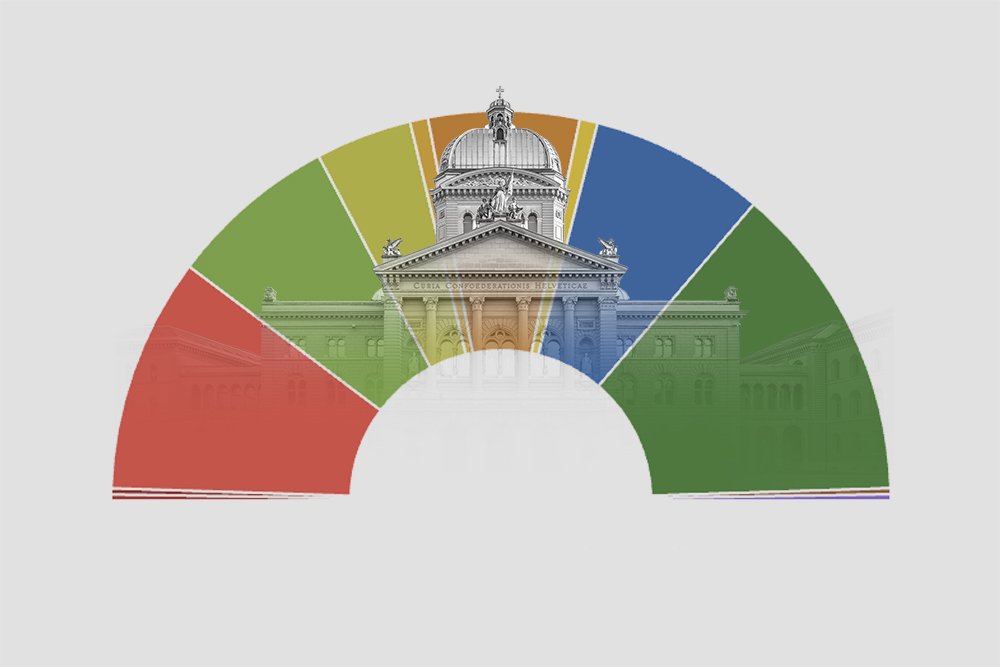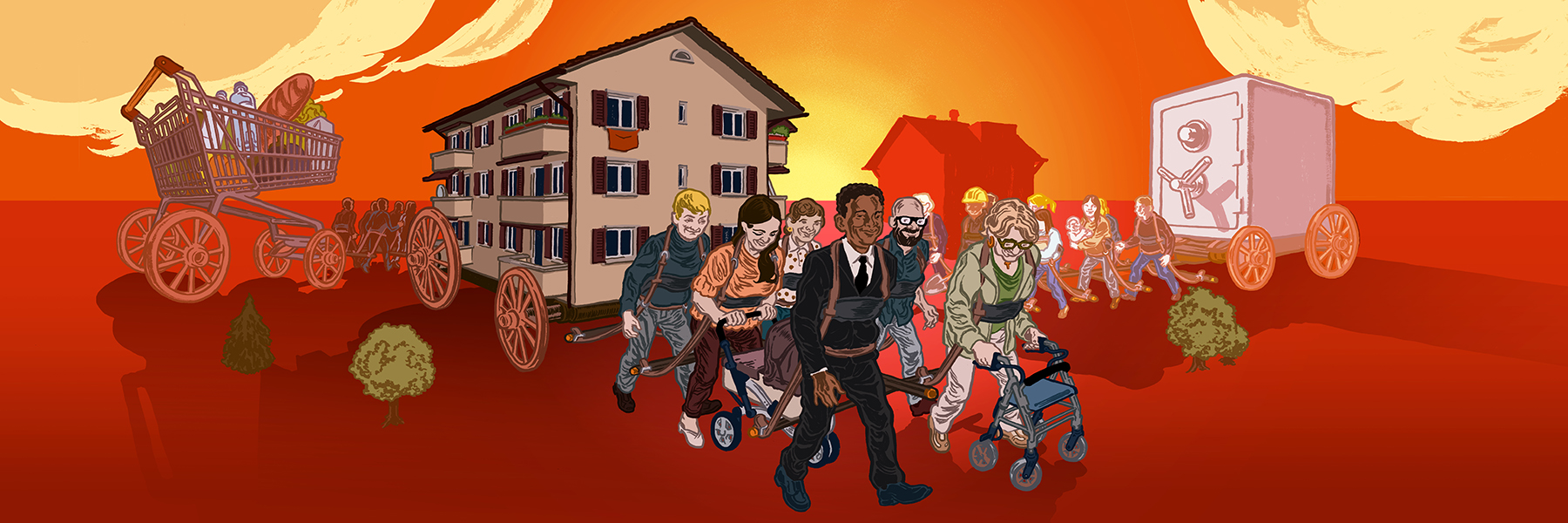
‘Parliamentarians are constantly campaigning’
One year after Swiss national elections, are parliamentarians still in tune with the people and are they defending the interests of the Swiss Abroad? The three guests in our Let’s Talk debate scrutinise the work of a more right-wing and less green parliament.
On October 23, 2023, the Swiss parliament shifted to the right, following the electoral defeat of the ecologists and the advance of the conservative right. One year on, in our Let’s Talk debate, gfs.bern political scientist Lukas Golder notes that polarisation has increased and that parliament is finding it difficult to find solutions.
“Parliamentarians are constantly campaigning. They practise a kind of symbolic politics. We’ve already seen this with the [right-wing] Swiss People’s Party, but now we’re also seeing it with the [left-wing] Social Democratic Party and the [centre-right] Radical-Liberal Party,” he says.

More
Elections 2023: results
‘The Greens are no longer scary’
Florent Quiquerez, a parliamentary journalist with the Tamedia press group, notes that the People’s Party is benefiting from the political context in Europe. “European society is becoming more right-wing, and this is acting as a sounding board for the conservative right. [The People’s Party] is sometimes joined by the Radical-Liberal Party and the Centre Party on security issues,” he believes.
Journalist Marie Vuilleumier, parliamentary correspondent for the French-speaking regional radio stations (RRR), believes that the loss of five seats by the greens in the House of Representatives has a concrete impact on the decisions taken in the chamber. “Green politicians were very present during the previous legislature, but now the pendulum has swung back,” she says.
Quiquerez adds: “The Greens are no longer scary. Their latest initiatives were rejected by the people. So their opponents no longer have any real interest in going their way. That explains their weakness.” However, Lukas Golder qualifies this by pointing out that the energy policy has already been set and that the strategy remains to focus on renewable energies.
Risk of political deadlock
The Social Democrats and the Greens are now relying on referendums to defend their ideas. This worked particularly well during the vote on the reform of the occupational pension scheme, which was rejected by the people last September. “It’s a strategy that works very well, but it also runs the risk of blocking our political system,” comments Golder.

More
Six lessons from Swiss voters’ rejection of occupational pension reform
Quiquerez agrees: “I’m not very optimistic about Switzerland’s ability to find compromises in the near future.” In his view, referendums and popular initiatives are the weapons of the weak. “If you have to resort to them, it’s because you don’t have the capacity to get your plans through parliament,” he says.
Loss of confidence in institutions
This year, parliament and the government lost on two major issues put to a federal vote: occupational pension reforms and a 13th month of pension. Golder believes that this reflects a problem of trust between parliament and the people. “If parliamentarians can no longer convince the people with compromises, that’s a real problem,” he says.
For Vuilleumier, there’s a gap between the concerns of the people and those of politicians. “For example, parliamentarians want to resolve issues of long-term pension funding, while the people are mainly worried about not having enough money to live on in retirement,” she says.
The confidence of the Swiss Abroad in the authorities depends on where they live, their age and their level of education, according to Alexandra de Mello, delegate for Singapore on the Council of the Swiss Abroad, who took part in the remote broadcast.
“The Swiss who live in an autocratic country will have more confidence in the Swiss multi-party system. Those who live in a country with a very sophisticated system of governance may have less confidence in Swiss institutions,” she says.

More
‘The anger of the Swiss Abroad has to be taken seriously’
Influence ‘close to zero’
Alexandra de Mello believes that the influence of the Swiss Abroad in parliament is “very limited”. “We try to defend our interests through the Organisation of the Swiss Abroad (OSA), but we think it would be better to have direct representation in parliament, as in Italy or France,” she says.
“The influence of the Swiss Abroad in parliament is close to zero,” says Florent Quiquerez. He points out that after Tim Guldimann – the only Swiss Abroad to have sat in parliament – resigned from the House of Representatives in 2018, the Swiss Abroad have been unable to elect a representative. “What’s more, neither the left nor the right seems prepared to move forwards on the development of electronic voting, one of the main demands of the diaspora,” he says.
Marie Vuilleumier is more optimistic on the issue. “We sense that parliament is open to developing electronic services,” she says. In particular, she believes that the new law on electronic identity should be passed, which would be an important step towards making e-voting more secure.
Translated from French by DeepL/ts






































You can find an overview of ongoing debates with our journalists here . Please join us!
If you want to start a conversation about a topic raised in this article or want to report factual errors, email us at english@swissinfo.ch.